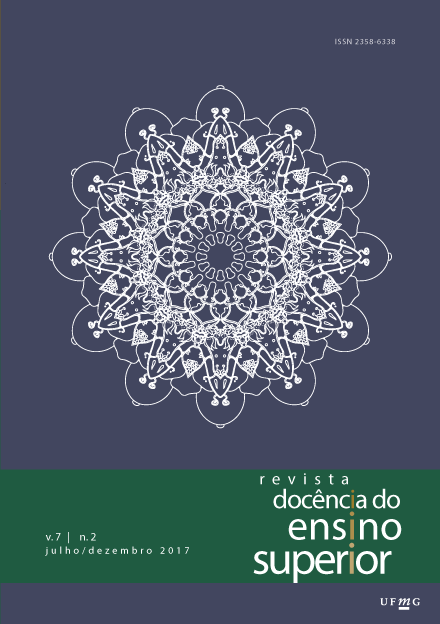The perception of undergraduates about a formative evaluative process in Chemistry teaching practices
is it possible to assess in a different way?
DOI:
https://doi.org/10.35699/2237-5864.2017.2241Keywords:
Chemistry-teaching, Evaluation in chemistry, Metacognition, Teacher trainingAbstract
It is important to reflect on the evaluation process with undergraduates, since the conception of evaluation as a test is still present, which only aims to verify and classify the students. The objective of this study was to investigate the perceptions of assessment, experiencing a different evaluation process in their view. For this purpose, six students who studied in the discipline of teaching chemistry were invited to participate in this research. A questionnaire was applied and interviews were conducted with some of them. The results indicate that some of them still believe that the evaluation should be student-centered; however, some also point out the regulatory aspect of evaluation, including metacognition and the use of several instruments as positive for better evaluation. From this research, it is suggested to invest in researches on how to evaluate in a better way in chemistry, since there are few studies about it and many are the questions and anxieties about it.
Downloads
Downloads
Published
Issue
Section
License
Authors who publish in this journal retain the copyright and grant the journal the right of first publication, with the work simultaneously licensed under the Creative Commons Attribution License which allows the sharing of work with acknowledgment of authorship and initial publication in this journal.
Authors are authorized to take additional contracts separately, for non-exclusive distribution of the version of the work published in this journal (e.g. publish in institutional repository or as a book chapter), with acknowledgment of authorship and initial publication in this journal.
Open access policy:
Revista Docência do Ensino Superior is an Open Access journal, which means that all content is available free of charge, at no cost to the user or their institution. Users may read, download, copy, distribute, print, search, or link to the full texts of the articles, or use them for any other legal purpose, without seeking prior permission from the publisher or author, provided they respect the license to use the Creative Commons used by the journal. This definition of open access is in line with the Budapest Open Access Initiative (BOAI).



























